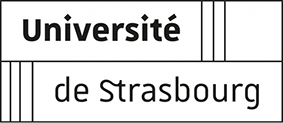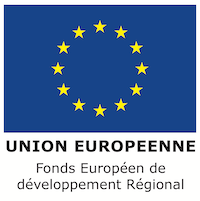The Institute of Molecular Biology of Plants (IBMP) is proud to offer 7 fully funded IMCBio PhD fellowships for 2025. Situated in Strasbourg, at the crossroads of innovation and collaboration, IBMP provides an exceptional environment for cutting-edge research in plant biology.
Available PhD Projects
Here’s a glimpse of the exciting projects you can join:
- Duchêne/Drouard – Mitochondrial Fission in Plant Mitochondria (PhD-2025-12):
This project aims to study the mechanisms of mitochondrial fission in Arabidopsis thaliana, an essential process for cellular adaptation to stress. By combining advanced proteomics and functional studies, it seeks to identify protein networks regulating mitochondrial dynamics in plants. - Genschik – Mechanisms and Role of AGO1 Phase Separation in Arabidopsis (PhD-2025-18):
This project explores how ARGONAUTE1 (AGO1) forms condensates in response to stress and how these condensates influence its role in post-transcriptional regulation and antiviral defense. Through genetic, proteomic, and transcriptomic approaches, the study aims to elucidate the molecular mechanisms of AGO1 phase separation and its physiological implications. - Gagliardi/Zuber – Molecular Determinants Shaping Poly(A) Tails of mRNAs in Arabidopsis (PhD-2025-19):
This PhD project aims to characterize the genetic determinants responsible for the specific distribution of mRNA poly(A) tails in Arabidopsis, revealed by Nanopore sequencing. Combining functional analyses, affinity purification, mass spectrometry, and machine learning, the goal is to uncover mechanisms underlying this post-transcriptional regulation and its impact on mRNA stability, translation, and localization. - Giegé/Salinas – Translation Initiation in Chlamydomonas Mitochondria (PhD-2025-23):
This PhD project aims to characterize the translation initiation process in the mitochondria of Chlamydomonas reinhardtii, a unicellular green alga with a unique mitochondrial genome. Building on robust preliminary data, this multidisciplinary project combines genetics, next-generation sequencing, biochemistry, and structural approaches (immunoprecipitation, Ribo-Seq, Cryo-EM) to identify new factors involved, understand their interaction with universal translation initiation factors, and elucidate their mode of action. - Giegé/Castanet – Regulation of Double-Stranded RNA Homeostasis in Chloroplasts (PhD-2025-27):
This PhD project aims to address a knowledge gap in chloroplast RNA quality control (QC) by investigating the role of double-stranded RNA (dsRNA) in chloroplast gene expression and regulation. Leveraging advanced sequencing tools (Illumina and Nanopore) and techniques such as dsRIP-Seq and immunolocalization, the project will identify RNA-RNA duplexes in ribonuclease mutants and under stress conditions while characterizing novel protein factors involved in dsRNA metabolism. - Blevins/Weixlbaumer – Structure-Function Analysis of RNA Polymerase IV in Tetraploid Nicotiana benthamiana (PhD-2025-33):
This project aims to elucidate how the structural features of RNA polymerase IV (Pol IV) and its CLSY recruitment factors enable the transcription of noncoding RNAs in silent chromatin. Using Nicotiana benthamiana as a model, the student will characterize CLSY-Pol IV complexes through functional genetics (CRISPR/Cas9) and phylogenetic analysis, study Pol IV subunits of distinct parental origins, and purify Pol IV-nucleosome complexes to determine their high-resolution structure via cryo-electron microscopy. This research will deepen our understanding of epigenetic regulation and open new avenues for plant improvement. - Ritzenthaler – Comprehensive Study of a Novel RNA-Binding Protein with Unique Structural Properties (PhD-2025-36):
RNA viruses exploit membrane-bound viral factories to replicate their genomes, generating double-stranded RNA (dsRNA), key elements in antiviral defense. By studying these dsRNA in Arabidopsis, we identified a conserved protein with high dsRNA-binding affinity, potentially involved in plant innate immunity. This project seeks to elucidate the function of this protein under normal conditions and during viral infections using CRISPR-Cas9 mutants and transcriptomic analyses. Molecular mechanisms will be explored through advanced microscopy, co-immunoprecipitation, and structural studies of protein-dsRNA complexes, offering new insights into plant immunity.
Why Choose IBMP?
- State-of-the-art facilities in molecular biology, genomics, and imaging.
- A vibrant international community of researchers.
- Opportunities to address global challenges in plant science, from climate change to food security.
📅 Application Deadline: January 2025
🌐 More Details and How to Apply: https://imcbio-phdprogram.unistra.fr
Join us at IBMP and shape the future of plant science!















